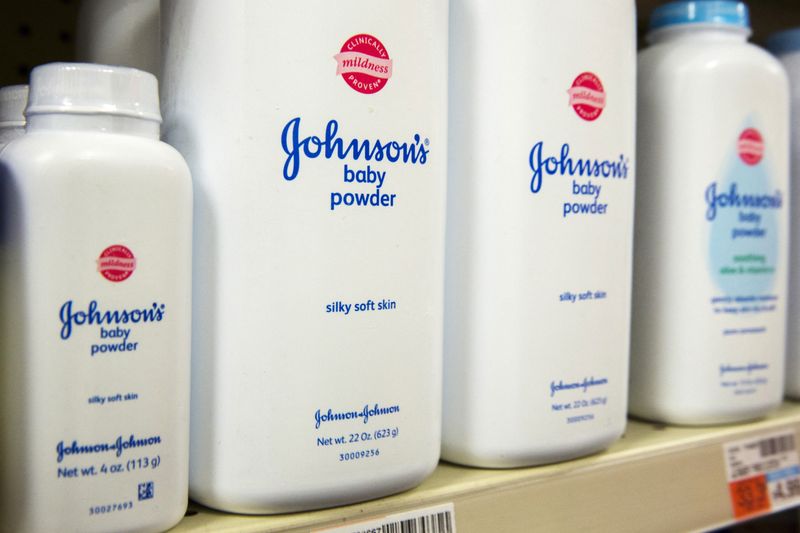By Dietrich Knauth
NEW YORK (Reuters) - A Florida jury on Thursday concluded that Johnson & Johnson (NYSE:JNJ)'s baby powder talc product did not cause the ovarian cancer of a Florida woman who died in 2019.
The lawsuit was brought by family members of Patricia Matthey, a Sarasota County resident who used Johnson's baby powder daily from 1965 until August 2016, when she was diagnosed with ovarian cancer, according to her family's lawsuit.
J&J's Worldwide Vice President of Litigation Erik Haas said the company was vindicated by the jury's decision.
"Consistent with decades of scientific research, the jury appropriately found that talc is safe, does not contain asbestos and does not cause cancer, which is the same outcome the company achieved in 16 of 17 ovarian cases tried to date," Haas said.
Leigh O'Dell (NYSE:DELL), an attorney for the Matthey family, said she respects the jury's decision, but will remain "undeterred" in future cases against J&J.
"The science supports the association between genital talc use and ovarian cancer, and we will continue to seek justice for the victims of J&J's neglect and indifference," O'Dell said.
Before her death, Matthey testified that advertisements for baby powder made her think that she was "dirty and smelly" and that she "needed Johnson's baby powder to be a good clean person," according to evidence presented by her family's attorney Lance Oliver during the trial.
The Matthey family alleged that J&J knew for decades that the talc it mined for use in baby powder could be contaminated with carcinogenic asbestos fibers. J&J suppressed scientific evidence linking talc products to increased cancer risk, according to the complaint.
J&J argued that there was no "conspiracy" to suppress research. Instead, the scientific evidence simply does not support the Matthey family's claims that its talc products cause cancer, according to J&J.
"This is fundamentally a case about science," J&J's attorney Morty Dubin said during opening statements in the trial.
J&J faces more than 50,000 lawsuits over talc, most by women with ovarian cancer, with a minority of the cases involving people with mesothelioma. Asbestos exposure is a known cause of mesothelioma.
J&J has attempted to reach a comprehensive settlement of the talc litigation through bankruptcy, but courts have rejected its two previous attempts.
Haas has said that the company is considering a third bankruptcy filing, and is trying to build more support for a bankruptcy settlement among the plaintiffs that have sued the company.
Haas said on Thursday that J&J will "continue to defend the meritless talc claims in the tort system," while those negotiations continue.
J&J's bankruptcy strategy put the talc litigation on hold from 2021 to 2023, but trials have resumed after the latest bankruptcy case was dismissed.
Trials in the talc cases have had a mixed record, with major plaintiff wins including a $2.1 billion judgment in 2021 awarded to 22 women with ovarian cancer.

A New Jersey appeals court in October threw out a $223.7 million verdict against the company, finding the testimony of the plaintiffs' expert witnesses unsound. The most recent case to go to trial ended in a hung jury on March 5.
J&J has recently settled some cases involving plaintiffs with mesothelioma, but the company has not provided details about the dollar amounts involved or said how many people they covered.